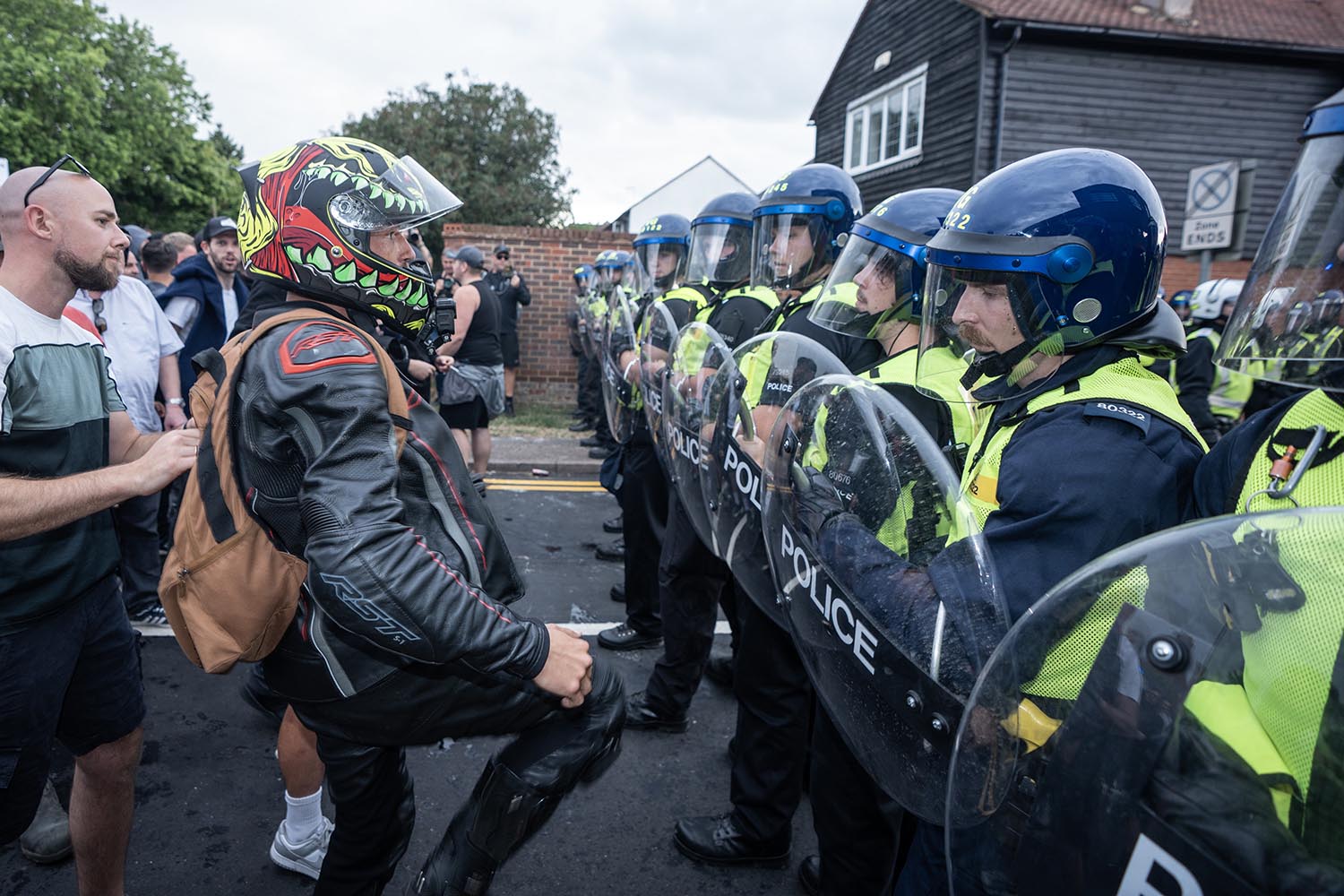It is a cliche that a cover-up is usually worse than the cock-up it is attempting to conceal. In the case of the Afghan superinjunction, the story of which was finally revealed last week, the cock-up – a data breach that potentially handed to the Taliban names and details of thousands of locals who had worked with British forces, as well as of British spies and members of the special forces – was about as disastrous as it could get. Yet so egregious was the cover-up that the cliche still rings true.
In February 2022 – six months after Britain had chaotically pulled out of Afghanistan – a soldier at UK special forces headquarters in London, verifying applications from Afghans who had worked with British forces for resettlement in this country, accidentally and calamitously emailed to various contacts the names and details of nearly 19,000 Afghans seeking refuge.
It took 18 months for the authorities to realise there was an issue, until alerted by a refugee support worker who had spotted a Facebook post with details from the database. At the same time, the journalist Lewis Goodall heard about the data breach from a source. When he contacted the Ministry of Defence, Goodall was immediately summoned to a secret court hearing that imposed a superinjunction on him – not only could he not report the breach, he could not even report that he had been injuncted. As other journalists became aware of the story, they too were silenced by the superinjunction. A cloak of invisibility covered both the data breach and the government’s response, and remained there until last week.
The justification for such unprecedented censorship was the need to prevent the Taliban from obtaining the database while the government attempted to aid those who might have been compromised. Yet the authorities also kept in the dark most of the potential victims of the breach. Ostensibly done for their own security, in reality it made it impossible for them to take protective measures. In any case, as Mr Justice Chamberlain observed in a court hearing, the evidence suggested “the Taliban already know of the existence of the dataset”.
Originally imposed for four months, the superinjunction became continually extended. It was, in Goodall’s words, “no longer about getting people out but keeping the story in”. The news blackout may have begun as a way of protecting potential victims of the data breach, but it soon became a means of protecting the authorities from embarrassment and politicians from scrutiny.
Superinjunctions are deeply corrosive of democracy. The ordinary mechanisms of accountability are rendered inoperative: the government is insulated from media surveillance, from scrutiny by MPs and parliamentary committees and from the pressures of public debate. Protected from public view was also the leak itself, and the failure of state machinery to carry out the most basic of functions, such as protecting sensitive data or holding individuals and institutions accountable for such failure.
The news blackout became a means of protecting politicians from scrutiny
The news blackout became a means of protecting politicians from scrutiny
All this occurred at a time when people were already feeling that their voices were unheard, that they were poorly served by the democratic process, and when immigration had become symbolic of a system that no longer worked. It is little wonder, then, that the consequence of the two-year omertà, followed by the sudden efflorescence of information, has been to provide a platform for commentators whose outrage is reserved primarily not for the betrayal of Afghans, or even the suppression of free speech and civil liberties, but, in the words of Telegraph columnist Allison Pearson, the “existential threat posed by superinjunction imposed to deceive the British people about the mass importation of Afghans to our country”. For Pearson, any relocation scheme “guaranteed more women would be raped” in Britain. “I don’t care if they’re at risk from the Taliban,” she tweeted, “Our people are at risk from them!”
For the academic and Reform UK supporter Matthew Goodwin, it was “crystal clear … that the reason the state took winter fuel payments from British pensioners, raided British family farms, and piled taxes on British businesses was so it could spend billions secretly importing dangerous Afghans into the country”.
Such arguments reveal the degree to which some view immigration as a zero-sum game, leading them deliberately to set one group against another, and to insist that the interests of British people require us to deny safety and dignity to Afghans. Dismissing Afghans as criminals and rapists shows, too, how such bigoted claims have woven themselves into the national conversation.
As often in such debates, the loudest voices do not necessarily represent what most people think. According to YouGov, the pollster, 63% believe that Britain has a “moral obligation” to relocate Afghans who worked with British forces if they face reprisals from the Taliban. Nevertheless, as protests outside an Epping hotel housing migrants, after an asylum seeker was charged with sexually assaulting a young girl once again exposed, anger and frustration can easily spill over into hatred and violence.
Newsletters
Choose the newsletters you want to receive
View more
For information about how The Observer protects your data, read our Privacy Policy
After Labour’s election triumph last year, the new defence secretary, John Healey, wrote a memo to cabinet colleagues on the need to “maintain control of the narrative” about Afghan relocations, particularly in the wake of that summer’s anti-migrant riots. What politicians fail to recognise, though, is that the very desire to control the narrative by curtailing public information not only undermines democracy but leads inevitably to the narrative spinning out of control.
Photograph by Lab Mo/London News Pictures



